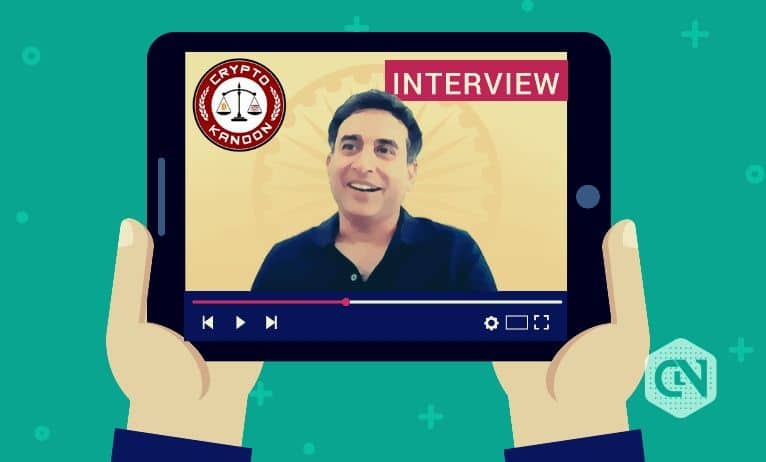Adv Ashim Sood: “We Argued That RBI Has No Power to Impose a Banking Ban on Crypto”

The banking ban RBI imposed on the crypto industry in April 2018 was recently struck down by the Supreme Court. This brought joy and happiness to thousands of the Indian crypto community members, and the man responsible for the success was Adv Ashim Sood, who represented IAMAI in the petition. Adv Sood was recently interviewed by Crypto Kanoon co-founder Kashif Raza, in which he explained the arguments presented in the court in detail.
Interview of the Year 2020 with Advocate Ashim Sood.
🔸Judgement explained.
🔸How Ashim had to prepare for the case?
🔸 Silver lining in the judgement.
🔸What was judges take?
🔸Will the government regulate crypto?
🔸What RBI can do now?#ThankYouAshimhttps://t.co/JAfcECtjm3— KoinX (Crypto Taxes Simplified) (@getkoinx) April 6, 2020
Good to see @cryptokanoon interviewing Mr. Ashim Sood who represented @IAMAIForum which WazirX is a part of, in the Crypto vs RBI case. #IndiaWantsCrypto https://t.co/inpYtT6kMY
— Nischal (Shardeum) ⚡️ (@NischalShetty) April 6, 2020
The interview was released by Crypto Kanoon, which was coincidentally launched on the same day when the RBI released the circular imposing the banking ban, on their second birthday on April 06. In the interview, Kashif requested Adv Sood to break down the entire case in simpler terms. In response, Adv Sood said that the first argument that they made was that crypto was a legal activity and that there was no law banning. “with all legal activities only the Parliament of India can decide whether they should be made legal or criminalized or anything of the sort,” he added.
Therefore, he said, the RBI has taken over the decision-making function of the parliament and rendered an otherwise legal activity illegal.
“What I told the court was that the implications of that are immense because tomorrow at the RBI decides that it wants to, for example, impose prohibition in the country by which I mean no alcohol should be distributed or sold in the country, it could easily come and say that the spread of alcoholism is affecting productivity, and therefore, the economy. and it could say that we will be withdrawing our banking services to everyone who is using alcohol.”
The second argument that the petitioners demanding the striking down of the infamous circular made was that even if the RBI had the power to label crypto illegal, it did not follow an honest process to examine the impact before banning crypto. Adv Sood argued that if the RBI felt that crypto could have harmful effects on the economy, they could have examined the material facts. “But what we showed the court again and again and again that there was no material proof that could possibly cause it to believe that there was any harm that merited a ban,” he said. The petitioners showed to the court the cryptocurrencies are causing no harm to the economy based on the material facts.
The final argument, according to Adv Sood, was that the argument of proportionality. This means that whenever a governmental organization decides to ban anything, it will first look into alternatives that can help realize the objectives that compelled it to decide on the ban in the first place. The petitioners argued that banning anything is the most extreme measure and should be reported only if there’s no other way of realizing the objective remains.
“The RBI, in the case of real estate transactions, in the case of gold transactions, and other sensitive types of transactions, where money laundering is a possibility, has laid down the most stringent KYC requirements then for other entities. So, we said they’ve done it for precisely the same reason because they believe money laundering is a possibility and instead of banning real estate or trade in real estate, or sale of real estate, or construction, they’ve said they’ll have better KYC. So, there was a less invasive measure short of a ban which the RBI should have considered them, which it did not consider and if the RBI would have considered it may not have found that the ban wasn’t necessary.”
The Supreme Court rejected the first two arguments and based its judgment on the third and final argument. However, Adv Sood stated that rejecting the first two arguments was not purely on merit, but as a preventive measure so that RBI doesn’t face litigation for every policy it puts in place. The apex house of justice turning down the two arguments also could be a measure to protect the credibility of and maintain withhold public faith in the RBI. You can access the complete interview here.



